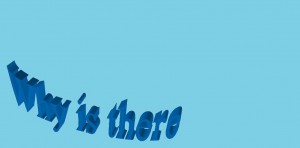A book is in a chapter is in a page is in a sentence is in a word is in a letter, and it is nowhere near. I have only read two books by Lost-Generation diva Gertrude Stein’s books it’s only two I have read, but, as can be observed, that should be enough for any style-absorbent reader to start writing nonsense. I guess most people around the world have read even fewer books by Gertrude Stein than I myself have read ‒ but still this hardly makes me an expert on her oeuvre, and it must be assumed that anything I may write about it will be no more than the casual assessment of your average literary passer-by who intends to become above-average just by writing about Gertrude Stein. A blog entry, a whisper less domestic, a snowflake. One of the books is prose, the other is poetic prose, both are poetry. The autobiography of Alice B. Toklas actually devotes its first three pages to Stein’s longtime companion’s supposed narrative of her own early life ‒ and then she met the writer, so the rest of the book is a biography of the writer in Caesaresque third person, and Gertrude Stein went there and Gertrude Stein said this to Picasso and at some point Gertrude Stein even commented on her notorious line ‘A rose is a rose is a rose is a rose.’ This is thus Toklas’ autobiography in the sense that it is an autobiographical work told from the viewpoint of someone who is not the author of the autobiographical work. Well, I think that’s just literary magic in all its apparent simplicity. Aside from this, Stein’s life appears to be little more than an endless succession of social gatherings at her Paris home and Stein’s writing appears to be little more than an endless succession of childlike utterances ‒ but everything is so dazzlingly sarcastic that one just needs to forgive and praise. The page is in the wall, it’s in the needle. Years go by and now there’s another book by Gertrude Stein on the shelf that has been awaiting its turn for such a long time and then it needs to be read and then it is read and it is called Tender buttons. The meaning of which is very clearly stated in this excerpt: ‘The meaning of this is entirely and best to say the mark, best to say it best to show sudden places, best to make bitter, best to make the length tall and nothing broader, anything between th e half.’ Totally freed from the laws of logic, the author basically juxtaposes everyday concepts everyday people wouldn’t expect to find within the same sentence. The child Gertrude reappears now and then ‒ ‘A little monkey goes like a donkey’ ‒ to remind us of the futility of searching for meaning, since words are nothing beyond themselves ‒ they are reality and there’s no such thing as a meaning, but only this cubist voice that is doing to literature what others are doing to painting what most others are just not doing. So this should be the most avantgarde book I have ever read, to the point that avantgarde seems scarcely feasible after it. I mean, what use is there in doing avantgarde when words and things and red paint don’t mean nothing no more and there’s nothing aside wordplaying. And then, in the second-to-last page of the book, I came across the only couple of sentences I could make any sense of. They went, ‘Why is there so much useless suffering. Why is there.’ And I must say finding this was sufficient reward for all the useless suffering experienced while reading the book. I was back in the world of routine meaning. Thanks be given to Gertrude Stein for eventually saving humanity just by saving art. And still I guess art is no more than the corner of the rain of the bird of the kitchen, or else it is not.
e half.’ Totally freed from the laws of logic, the author basically juxtaposes everyday concepts everyday people wouldn’t expect to find within the same sentence. The child Gertrude reappears now and then ‒ ‘A little monkey goes like a donkey’ ‒ to remind us of the futility of searching for meaning, since words are nothing beyond themselves ‒ they are reality and there’s no such thing as a meaning, but only this cubist voice that is doing to literature what others are doing to painting what most others are just not doing. So this should be the most avantgarde book I have ever read, to the point that avantgarde seems scarcely feasible after it. I mean, what use is there in doing avantgarde when words and things and red paint don’t mean nothing no more and there’s nothing aside wordplaying. And then, in the second-to-last page of the book, I came across the only couple of sentences I could make any sense of. They went, ‘Why is there so much useless suffering. Why is there.’ And I must say finding this was sufficient reward for all the useless suffering experienced while reading the book. I was back in the world of routine meaning. Thanks be given to Gertrude Stein for eventually saving humanity just by saving art. And still I guess art is no more than the corner of the rain of the bird of the kitchen, or else it is not.



Aún no hay comentarios.